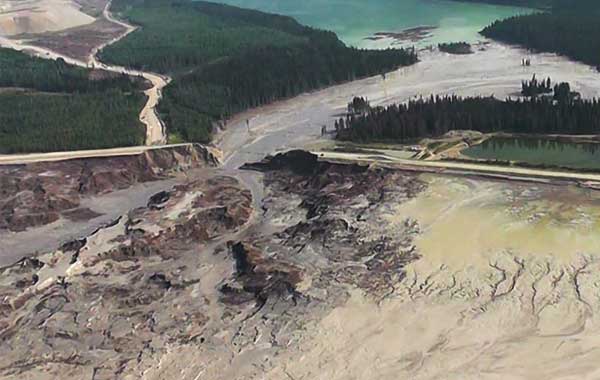Provincial government scientists in British Columbia say they are being prevented from speaking to media, face political interference and are worried about their ability to conduct proper research, according to a study released today.
A report by Evidence for Democracy, a non-partisan organization promoting transparency in government decisions, found 49 per cent of B.C. government scientists believe political interference is preventing evidence from being used to craft laws and policy.
“It hasn’t been an issue that has captivated the public and we believe that it should,” said Scott McCannell, executive director of the Professional Employees Association, which represents most public sector scientists in B.C.
After being approached by Evidence for Democracy, the union provided part of the funding for the study and distributed the survey to members who are scientists. Evidence for Democracy decided independently on the questions and report’s contents, McCannell said.
The study surveyed 403 scientists working for the province in 10 ministries, representing about 35 per cent of public sector scientists in the province. It asked 64 questions related to communication, independence and research abilities.
The most obvious political interference is the BC Liberal government’s elimination of 25 per cent of scientist positions since taking power in 2001 and delegating oversight of B.C.’s resources to the private sector, McCannell said.
Closing regional offices, limiting professional development and a lack of long-term planning are all contributing factors to the erosion of scientists’ ability to do their jobs, he said.
More than two-thirds of scientists surveyed said they don’t have the resources to properly conduct their research and 71 per cent said a lack of resources hampers their ability to produce scientific reports, the study found.
The report uses the example of a massive tailing pond breach at the Mount Polley mine as an example of the potential damage from inadequate resources for government scientists and reliance external consultants to assess and manage risk. The cuts, outsourcing of oversight and poor enforcement created a “perfect storm” which lead to the tailings pond failure, it charges.
It should be a concern that only three per cent of scientists surveyed said they could speak freely about their work to the media, McCannell said.
“What it does is diminishes government’s accountability to make sure that decisions are being made reflecting science, science values and, frankly, other values beyond industry.”
McCannell said B.C. government scientists face the same challenges as federal scientists under the Stephen Harper government. The provincial government has been more subtle, but the effect is the same, he added.
He added that he hopes voters will consider the issue before voting in the May 9 election.
In 2013 the Professional Institute of the Public Service of Canada, which represents 15,000 federal government scientists, released a report titled “The Big Chill” detailing the Harper government’s muzzling of scientists.
The report found 10 per cent of scientists were not able to speak to the media freely about their work, calling the figure “worrisome.” It also found 71 per cent of federal scientist felt the government’s approach to science was hurting its ability to craft informed policy based on evidence — the same result found by the B.C. study.
The Evidence for Democracy report recommends measures included more resources for work by government scientists and allowing scientists to have the final say on how their work is made public.
McCannell said proper whistleblower protection is also needed for provincial government scientists. ![]()
Read more: BC Politics, Science + Tech















Tyee Commenting Guidelines
Comments that violate guidelines risk being deleted, and violations may result in a temporary or permanent user ban. Maintain the spirit of good conversation to stay in the discussion.
*Please note The Tyee is not a forum for spreading misinformation about COVID-19, denying its existence or minimizing its risk to public health.
Do:
Do not: